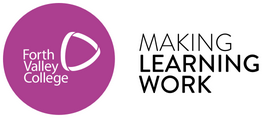Funding secured by Forth Valley College will support the running of a new free course that will aim to provide confidence and inspiration for people across Clackmannanshire, to improve their digital skills.
Digital Skills Sessions – funded by Stirling and Clackmannanshire City Region Deal Flexible Skills Programme – is a course which will run from FVC’s Alloa Campus starting on Monday 23 May offering flexible ways to access digital learning.
The course will run on Mondays and Wednesdays with free bus transport and a free Chromebook with 24 months data for anyone completing the course, so there is no better time to get digital and take up this fantastic opportunity. The Chromebook will be provided for learners who successfully apply.
Lisa McLaren, FVC’s Learning Services Manager, said: “The first approach is via an evening class and we will run three lots of six sessions between May and the end of October 2022 where students will learn the very basic digital skills, components of the PC, using Microsoft Word, learning how to use Internet and create and send emails and build a CV. In addition, through working in partnership with the Pre-Employability Clackmannanshire project we are also able to offer a free bus service for those individuals who wish to attend the evening classes. The bus will have various pick up points in Clackmannanshire to ensure transport is not an issue for those wishing to take up this fantastic opportunity.
“Other sessions are via Flexible Learning, running as and when suits the learner between May and the end of August, with support during our opening hours from a dedicated member of our team. During this course the individuals will learn how to use Microsoft Word and Excel, more advanced features of searching the internet and creating and sending emails, plus employability skills.”
For more information on these free courses or to book onto a session email flexible.learning@forthvalley.ac.uk
Applications are particularly welcome from individuals who may have additional challenges in accessing learning, for example lower income households, women, and people with experience of the care system, refugee or asylum status, have a disability, or have been through the criminal justice system.


